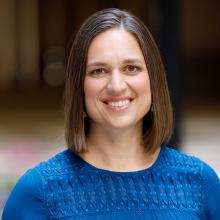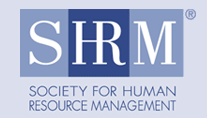Faith-friendly Organizations Mitigate Risk
Status message
A session in this conference ends more than 10 days after the conference! Some sessions may not appear properly in My Session Planner.Session seating is first come, first served. Thank you for your cooperation.
Religious (or spiritual or ethical) identity is a significant dimension of many people's lives. Despite this reality, few organizations are “faith-friendly.” David Miller, Director of the Faith & Work Initiative at Princeton University, defines a “faith-friendly” company as one that recognizes the centrality of faith for many employees, welcomes all traditions equally, and goes beyond compliance-based religious accommodation to ensure employee belonging extends to the religious dimensions of their identities.
Many leaders assume that organizational religious inclusion strategies must be fraught with legal risk. As a result, religion is often left out of DEI strategies. While much excellent work has been done to increase a sense of belonging across race-, gender-, sexuality-, ability- and age-based dimensions of employees’ identities, employees’ religious, spiritual, and ethical selves generally go unwelcomed.
The assumption that religious-inclusion initiatives carry significant risk is countered directly by EEOC Commissioner Andrea Lucas, who recommends a faith-friendly approach like the one Miller advocates as the legally safest approach for organizations when it comes to addressing the religious dimensions of their employees’ identities. In this session, attendees will learn more about Commissioner Lucas’s (and other experts’) recommendations and leave better equipped to lead organizational conversations about the benefits of promoting religious inclusion at work.
Learning Objectives:
- Compare a faith-friendly approach to other approaches for dealing with issues of religious identity at work.
- List a few concrete examples of faith-friendly policies and practices.
- List a few benefits of implementing a faith-friendly approach as part of broader DEI and belonging strategies.
- Assess your organization’s current approach to (or appetite for) religious inclusion.
- Identify at least one concrete next step for advancing religious-inclusion conversations at you organization.
Connie Meyer

Connie Meyer is the Curriculum Development Consultant at Interfaith America, a non-profit organization that inspires, equips, and connects leaders and institutions to unlock the potential of America’s religious diversity. Connie consults with colleagues across the organization to ensure best-in-class learning across all Interfaith America programs and also directly designs engaging, effective interfaith learning experiences across in-person, online, and hybrid spaces. Connie’s work is grounded in deep experience across the fields of learning & development, dispute resolution, and intercultural relations. She has applied her expertise across corporate, academic, and non-profit contexts, including a decade of work as a corporate educator at multiple Fortune 100 organizations. She holds an M.A. in Intercultural Conflict Management and teaches mediation skills at Northwestern University.
Find Sessions by Day
